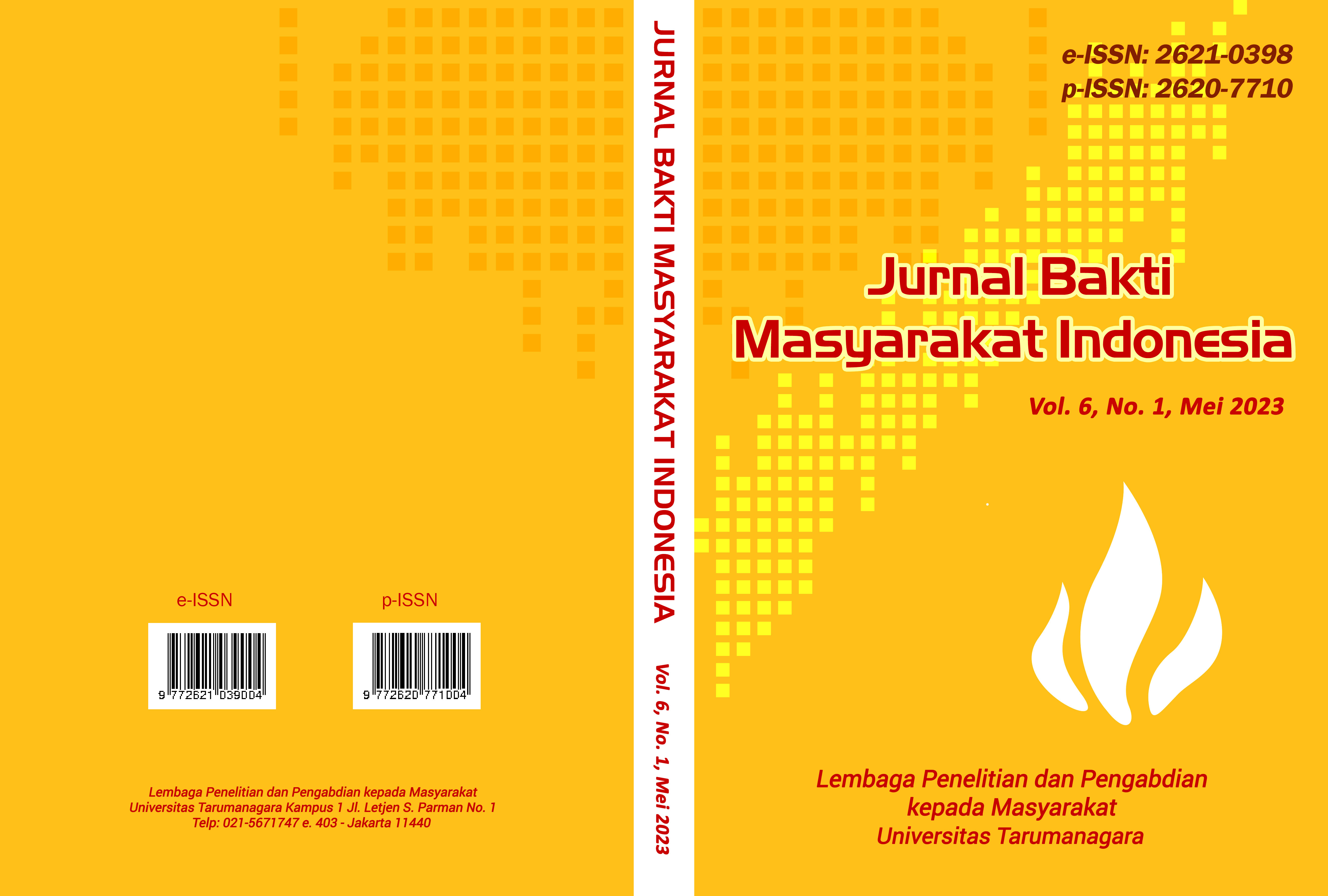PSIKOEDUKASI DALAM KEMAMPUAN MENGENALI KONSEP MINAT DAN BAKAT PADA SISWA SMP X II JAKARTA
Isi Artikel Utama
Abstrak
The quality of learning is dynamic and relevant to the needs of the community and graduate users, both in its academic culture, the commitment of institutions in effective learning management, and efficiency in access to information development. Therefore, quality learning will certainly produce quality graduates. To be able to take part in learning in high school well, students need to be able to recognize every potential they have. Therefore, the research of talents and interests can certainly be continuously carried out to be able to find out the development of individual interests and talents. Quite a lot of students still feel confused in determining the direction of interest they want to pursue in the future. This confusion can certainly cause some problems in the future such as learning difficulties, feelings of boredom, unmotivated, and feeling conflicts with parents to stress and will later hinder students in completing their studies. To prevent this kind of problems, we can provide comprehensive information about the interests and talents possessed by each student. The provision of comprehensive information can be done through assessment and psychoeducation. Therefore, in addition to assessment, psychoeducation needs to be carried out to be able to better convince students of how to recognize their talents and interests. Psychoeducation will be held on November 14, 2022 at SMP X II Jakarta. There were 147 psychoeducational participants, namely students who were in grades VII and IX at the junior high school. Psychoeducation is packaged in the form of seminars and talk shows. The result of this psychoeducation is that students of SMP X II Jakarta feel more confident in the level of education they will choose in the future, especially class IX students who will soon make major elections.
ABSTRAK:
Mutu pembelajaran merupakan sesuatu yang dinamis dan relevan dengan kebutuhan masyarakat dan pengguna lulusan, baik dalam budaya akademiknya, komitmen lembaga dalam pengelolaan pembelajaran yang efektif, serta efisiensi terhadap akses perkembangan informasi. Pemilihan jurusan di sekolah menengah atas adalah suatu langkah awal untuk menentukan bidang karir yang akan dipilih oleh setiap individu. Untuk dapat bisa mengikuti pembelajaran di SMA dengan baik, siswa perlu untuk dapat mengenali setiap potensi yang dimilikinya. Oleh karena itu, penelusuran bakat dan minat tentunya dapat terus dilakukan untuk dapat mengetahui perkembangan minat dan bakat individu. Cukup banyak siswa yang masih merasa bingung dalam menentukan arah minat yang ingin mereka tekuni kedepannya. Kebingungan tersebut tentu dapat memunculkan beberapa masalah kedepannya seperti kesulitan belajar, perasaan bosan, tidak termotivasi, dan merasa konflik dengan orang tua hingga stress dan nantinya akan menghambat siswa dalam penyelesaian studinya. Pencegahan masalah tersebut dapat dilakukan dengan cara memberikan informasi yang komprehensif mengenai minat dan bakat yang dimiliki oleh tiap siswa. Pemberian informasi yang komprehensif dapat dilakukan melalui asesmen dan psikoedukasi. Oleh karena itu, selain dilakukan asesmen perlu di lakukan juga psikoedukasi untuk dapat lebih meyakinkan siswa mengenai cara mengenali bakat dan minat yang dimilikinya. Psikoedukasi dilaksanakan pada tanggal 14 November 2022 di SMP X II Jakarta. Peserta psikoedukasi berjumlah 147 orang yaitu siswa yang duduk di bangku kelas VII dan IX di SMP tersebut. Psikoedukasi dikemas dalam bentuk seminar dan talkshow. Hasil dari psikoedukasi tersebut adalah siswa SMP X II Jakarta merasa lebih yakin dengan jenjang pendidikan yang akan mereka pilih kedepannya khususnya siswa kelas IX yang sebentar lagi akan melakukan pemilihan jurusan
Rincian Artikel

Artikel ini berlisensiCreative Commons Attribution-NonCommercial-ShareAlike 4.0 International License.
This work is licensed under a Jurnal Bakti Masyarakat Indonesia https://creativecommons.org/licenses/by-nc-sa/4.0/
Referensi
Cohen, R. J., Swerdlik, M. E, & Sturman, E. D. (2018). Psychological testing and assessment: An introduction to tests and measurement (9th ed.). New York, NY: McGraw-Hill.
Goñi, E., Madariaga, J. M., Axpe, I., & Goñi, A. (2011). Structure of the Personal Self-Concept (PSC) Questionnaire. International Journal of Clinical and Health Psychology, 11(3), 509–522.
Kerr, Barbara. (2009). Escyclopedia of giftedness, creativity, and talent. California: Sage Publications, Inc
Lucy, Bunda. 2010. Mendidik Sesuai Minat dan Bakat Anak (Painting Your Children’s Future). Jakarta: PT. Tangga Pustaka.
Reninger, K. Ann & Hidi, Suzanne E. Hidi. (2016). The power of interest for motivation and engagement. New York and London: Routledge Taylor & Francis Group.
Ryan, R. M., & Deci, E. L. (2000). Self-Determination Theory and the Facilitation of Intrinsic Motivation Social Development, and Well-Being. American Psychologist Association, 55(1), 68–78. https://doi.org/doi: 10.1037/0003- 066X.55.1.68
Syarqawi Ahmad & Dina Nadira Amelia. (2019). Bimbingan dan Konseling Karir (Teori dalam Perencanaan dan Pemilihan Karir). Widyapuspita
Vallerand, R. J., Pelletier, L. G., Blais, M. R., Hriere, N. M., Senecal, C., & Vallieres, E. F. (1992). The Academic Motivation Scale: A Measure of Intrinsic, Extrinsic, and Amotivation in Education. Educational and Psychological Measurement. In Educational and Psychological Measurement (Vol. 52, pp. 1003–1017). https://doi.org/doi: 10.1177/0013164492052004025
Winkel, W.S. (2005). Psikologi Pengajaran. Yogyakarta: Media Abadi



